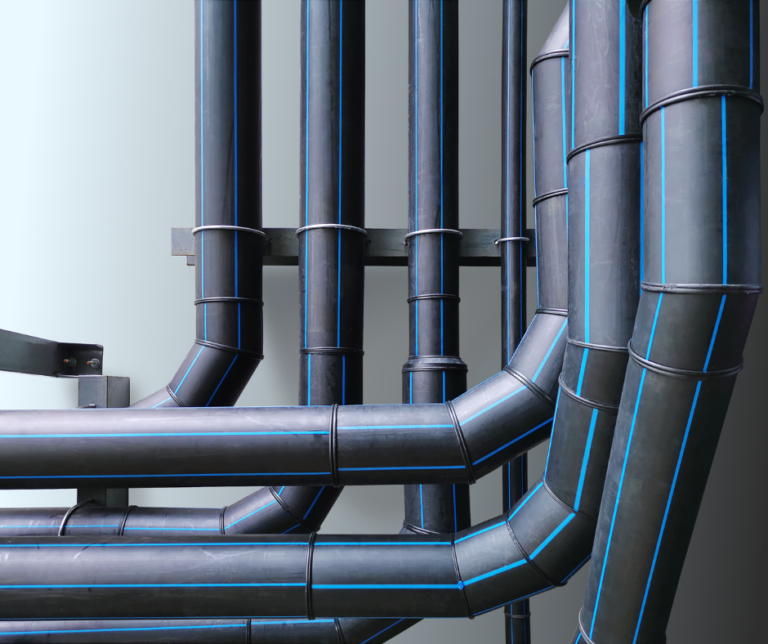The Complete Guide to Pipe Manufacturing Midland TX for Energy Projects
Wiki Article
Comprehending the Secret Benefits of HDPE Pipeline for Water and Wastewater Administration
The use of HDPE pipe in water and wastewater administration presents countless advantages that merit factor to consider. Its exceptional resilience and long lifespan make it a favored choice for several jobs. Additionally, the product's resistance to rust and chemical damage boosts its reliability in numerous environments. Nonetheless, the benefits expand beyond simply longevity and resistance. Exploring its cost-effectiveness and ecological impact discloses even more compelling factors for its prevalent fostering in modern-day infrastructurePhenomenal Resilience and Durability

HDPE pipeline sticks out for its extraordinary longevity and longevity, making it a recommended choice in water management systems. Constructed from high-density polyethylene, these pipes can endure considerable pressure and tension, guaranteeing reliable performance over time. Their durable nature permits them to sustain severe environmental conditions, including temperature variations and dirt motions, which can trigger other materials to fail.
The life-span of HDPE pipelines frequently surpasses half a century, giving an economical remedy for communities and markets alike. Additionally, the material's light-weight homes simplify installment, lowering labor expenses and timeframes. This sturdiness reduces the requirement for frequent repairs or substitutes, even more boosting its economic appeal.
In water management applications, the integrity of HDPE pipes means less disruptions and improved service continuity, making them indispensable to sustainable framework development. The mix of sturdiness and durability solidifies HDPE's function as a cornerstone in efficient water monitoring services.

Resistance to Deterioration and Chemical Damages
While many materials catch deterioration and chemical damage gradually, HDPE pipelines exhibit amazing resistance, making them suitable for numerous water management applications. This durability originates from the molecular structure of high-density polyethylene, which is inherently non-reactive and does not corrode like metals or deteriorate from direct exposure to rough chemicals. As an outcome, HDPE is very effective in environments with aggressive substances, such as wastewater systems that may include acids, bases, and organic solvents.
Furthermore, HDPE pipelines can endure environmental elements such as soil acidity and saline conditions, even more enhancing their suitability for varied applications (American Plastics HDPE Pipe for Oilfield). Their capability to preserve structural integrity over time reduces the risk of leaks and failings, which is essential in guaranteeing the safety and integrity of water circulation and wastewater administration systems. The resistance to deterioration and chemical damages noticeably adds to the overall efficiency and longevity of HDPE piping services.
Cost-Effectiveness and Financial Advantages
When considering the economic ramifications of water management systems, the cost-effectiveness of HDPE pipelines becomes evident. These pipelines offer reduced installation and upkeep costs contrasted to traditional materials like steel or concrete. Their lightweight nature streamlines transport and setup, causing decreased labor expenditures. Additionally, HDPE pipelines display a lengthy lifespan, usually surpassing half a century, which translates to fewer replacements and lasting cost savings.The resistance of HDPE to rust and chemical damages minimizes the need for expensive fixings and substitutes. The pipes additionally sustain reliable water flow, decreasing power prices linked with pumping systems. By reducing leaks and water loss, HDPE pipelines add to significant economic benefits for towns and markets alike. Generally, the preliminary financial investment in HDPE piping can yield considerable monetary returns over the lifespan of the water administration system, making it a prudent option for sustainable infrastructure development.
Ecological Sustainability and Lowered Influence

Versatility and Adaptability in Installation
Due to their special properties, HDPE pipes offer exceptional flexibility and versatility in installment, making them suitable for a vast array of applications. Their lightweight nature permits easier handling and transportation, decreasing labor prices and setup time. HDPE pipelines can be curved and shaped to fit different terrains and job needs, which is especially beneficial in testing atmospheres.Additionally, their resistance to corrosion and chemical damages read more enables installation in varied settings without the demand for specialized protective layers. The capability to fuse joints produces a constant, leak-free system, boosting the general stability and integrity of the installment. HDPE's flexibility also fits ground motion, lowering the risk of damage in areas susceptible to moving soil. Generally, these features make HDPE pipelines not just functional but also a favored option for water and wastewater administration systems.
Often Asked Concerns
How Does HDPE Pipe Compare to PVC in Water Management Applications?
HDPE pipeline offers superior flexibility, resistance to corrosion, and longevity contrasted to PVC. Its lighter weight promotes less complicated installment, while its lengthy life expectancy minimizes replacement costs, making HDPE a preferred choice in water monitoring applications.What Is the Life-span of HDPE Piping Under Regular Problems?
Under normal problems, HDPE pipelines can have a life expectancy varying from 50 to 100 years. Their toughness and resistance to rust add to their long-lasting performance in different applications, making them a trustworthy option for facilities.Are HDPE Pipeline Recyclable After Their Service Life?
Yes, HDPE pipelines are recyclable after their service life. Pipe Manufacturing Midland TX. They can be processed and repurposed into new items, significantly reducing environmental influence and promoting sustainability within the market, making them an environment-friendly selection for piping optionsWhat Is the Setup Process for HDPE Piping?
The setup procedure for HDPE pipes includes site preparation, trenching, pipe combination or mechanical signing up with, backfilling, and pressure screening. Correct techniques ensure a durable and efficient system for delivering water and wastewater properly.Can HDPE Piping Be Utilized for Both Safe And Clean and Non-Potable Water Solutions?
Yes, HDPE pipelines can be utilized for both potable and non-potable water supply. Their convenience, sturdiness, and resistance to corrosion make them ideal for various applications, making certain secure and reliable transportation of water in different contexts.Report this wiki page